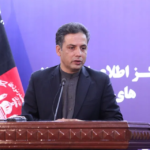President-elect Joe Biden’s nominee for secretary of state Antony Blinken said that the Biden administration will review the peace agreement with the Taliban.
“We want to end this so-called forever war. We want to bring our forces home. We want to retain some capacity to deal with any resurgence of terrorism, which is what brought us there in the first place,” Blinken said at his Senate confirmation hearing.
“We have to look carefully at what has actually been negotiated. I haven’t been privy to it yet,” he said, adding that “We must thoroughly assess the US-Taliban peace agreement, I still do not know the details of this agreement.”
Last year on February 29, the US and Taliban signed a deal to end US’s longest war. In the accord signed in Doha, the US said it would withdraw all troops from Afghanistan by May 2021 –if all conditions were met–and the Taliban pledged not to allow terrorist groups including Al-Qaeda to operate from Afghanistan.
Blinken during the hearing promised to consider the rights of women and girls in Afghanistan’s peace process.
“I don’t believe that any outcome that they might achieve is sustainable without protecting the gains that have been made by women and girls in Afghanistan over the last 20 years,” Blinken said.
“I would acknowledge to you that I don’t think that it’s going to be easy, but we will work on it,” he added.
Afghan peace
Waheed Omar, President Ashraf Ghani’s senior adviser for public and strategic affairs, on Wednesday said that the Afghan government will not release more Taliban prisoners, and said that previous releases have resulted in more violence.
This comes as the Taliban has demanded the release of 7,000 more prisoners, the removal of the group’s members from the UN blacklist, and the formation of an Islamic system in order to continue the peace talks, according to peace talks.
“We are not in favor of releasing more Taliban prisoners,” Omar said.
The release of over 5,000 Taliban prisoners before was intended to reduce violence as the part of the peace process, Omar said, but “violence has increased because of it.”
In the meantime, Republic negotiator Abdul Hafiz Mansoor on Monday said that the negotiating team has decided that the legitimacy of the war must be discussed with the Taliban before any progress can be made.
He said the talks will not have an outcome until this issue is clarified.
On Sunday, the chief negotiators from the Afghan republic and the Taliban met; however, the working groups from both sides failed to meet on Monday to finalize the agenda for the talks.
Three meetings were held in the first days since the talks resumed on January 6, but the working groups from both sides have not met for the last six days.
According to negotiator Nader Nadery, it was only the heads of the two teams and a limited amount of members who met on Sunday evening and discussed the agenda.
The lack of meetings was criticized by Abdullah Abdullah, head of the High Council for National Reconciliation (HCNR), who met with a number of foreign diplomats at a virtual event to discuss coordination around the peace efforts.
Abdullah said the peace efforts must be expedited.
The US-Taliban deal signed on February 29 last year raised hopes among Afghans for a reduction in violence but the Taliban, in defiance of the international community, continued their attacks against the Afghan government forces.











